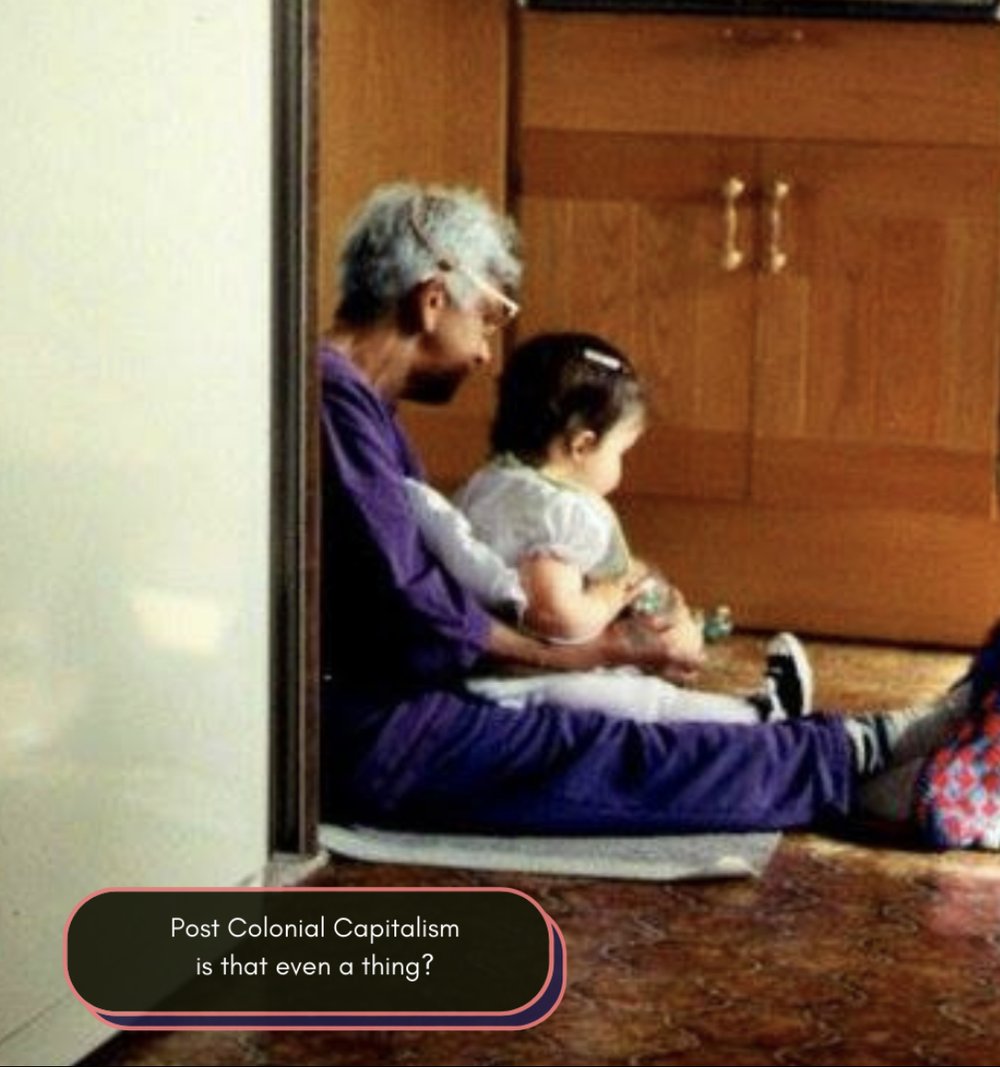
When I first had the idea for this tea company, I wanted it to be deeply steeped in the postcolonial theory that had both opened my eyes and given me language to describe my lived experience.
There are two types of postcolonialism, there’s post-colonial (note the hyphen) and then there is postcolonial. Post-colonial is usually used to denote a specific “epoch” in time, but for the purposes of Sarjesa we take a leaf from Dr. John McLeod and view postcolonialism as a set of representations, attitudes and values. For me, it represents a way of looking at the world and working towards a more equitable tomorrow.
The comment I get sometimes (from English majors who have intellects that far surpass mine) is that you cannot have a business that is postcolonial or decolonial (which is different - btw). The argument is that capitalism and colonialism are always and already inextricably linked.
I don’t pretend to have the answers to this. It seems like something that would take a lifetime to untangle. Yet, I do wonder if there is a future where capitalism can be transformed by the very folk who have been excluded from it for so long.
I used to call the tea an activist project, because I did not want it to become ‘corrupt’ but what I’m learning is that running a business is all about choices and trade offs. We can do so much good when we use business models to change the world around us, especially when we centre transparency, equity, and the voices that often go unheard.
I’m of mixed ancestry, and many of my relations worked in the sugarcane fields under indentured labour. I think about them when I am working with farmers, or receiving a shipment from our agricultural partners. Somewhere in the world people consumed sugar that my family harvested, namelessly. I want to change this.
I don’t think we will ever be rid of colonialism, and I wouldn’t want to forget it or pretend it didn’t happen. When we name injustice, we create spaces for healing. I do think we can be postcolonial, and move towards a space where business is used as a force for good in the community, grounded in reciprocity.
Love,
AD
PS - look at it this tattered, well loved text book


